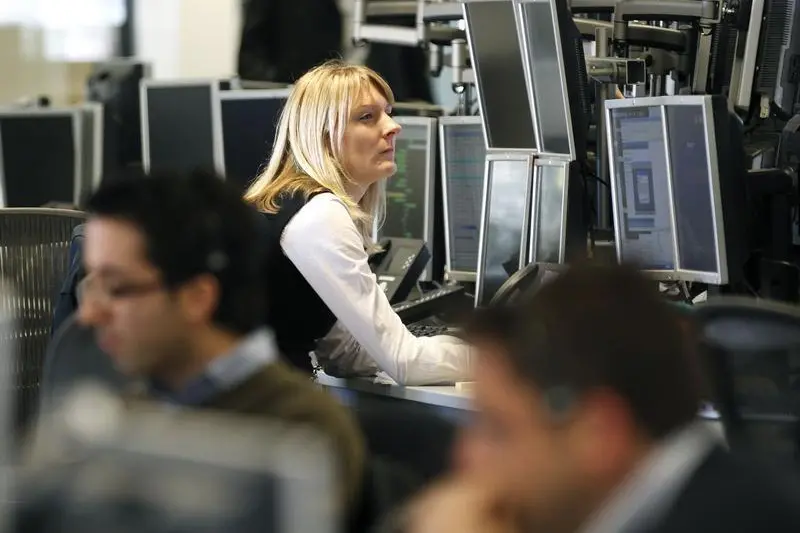PHOTO
Global shares neared record highs on Thursday, supported by investor confidence in the prospect of a drop in U.S. interest rates this year, while the pound eased after the Bank of England left rates unchanged in a dovish decision.
In an action-packed day for central banks in Europe, the BoE kept UK rates at a 16-year high of 5.25%, but said the decision not to cut had been "finely balanced", a sign traders took to mean an August cut could be on the table.
The Swiss National Bank cut interest rates for a second time this year, which knocked the Swiss franc , while Norway's Norges Bank left rates unchanged, as expected.
The MSCI All-World index was broadly steady at 805.19, after marking another record high on Wednesday, when U.S. markets were closed for a public holiday.
In Europe, the FTSE 100 traded at session highs after the BoE decision, up 0.4% on the day, while the regional STOXX 600 was up 0.5%.
The pound fell 0.2% to $1.2688 against the dollar, while the euro edged up 0.1% against the pound to 84.53 pence. The euro was down 0.1% against the dollar at $1.0728.
The stars are aligning for a UK rate cut. Data this week showed consumer inflation fell to 2% for the first time since 2021 in May, although service-sector price pressures and wage growth are still running hotter than the BoE would like.
"The broader message is that inflation pressures are fading in the UK – a trend that was acknowledged by policymakers," UBS Global Wealth Management chief euro zone and UK economist Dean Turner said.
"To avoid a passive tightening in monetary policy, the Bank will soon have to lower interest rates to keep up with inflation on the way down, as it did on the way up. The Swiss National Bank’s decision to lower interest rates for a second time this morning is illustrative of this broader trend. We expect the BoE to join the cutting cycle when they meet in August,” he said.
DOLLAR GAINS
With the pound under pressure, the dollar index, which measures the U.S. currency against six others, rose 0.2% to 105.39.
Gold, which tends to perform well in an environment of lower rates, was up 0.6% at $2,339 an ounce, having touched its highest since the start of June earlier on.
A surge in tech stocks on Tuesday lifted AI chipmaker Nvidia above Microsoft as the world's most valuable company, leading to a global rally in tech shares.
With U.S. markets closed for a holiday on Wednesday, stock futures were in the green on Thursday, with those on the tech-heavy Nasdaq 100 outperforming, up 0.6% compared with a 0.4% rise in S&P 500 futures.
"Nvidia remains the most important stock in the world," Chris Weston, head of research at Pepperstone, said in a note.
Weston, though, cautioned that index market breadth has been poor, with participation underwhelming, suggesting the rally has been built on a shaky foundation.
"The fact remains the market is now all in on the rally in AI-related names and big tech and given the lack of clear immediate risk the path of least resistance is for higher equity index levels."
Investors are waiting for more data to give an idea of when the Federal Reserve might start cutting rates, after the U.S. central bank last week projected just one rate cut in the year and policymakers this week have also been cautious.
The Japanese yen reached its weakest level against the dollar since late April on Thursday, touching 158.41. Much of the decline in the value of the currency has been the product of the wide gap between Japanese and U.S. interest rates.
In commodities, oil prices rose, with Brent up 0.3% at $85.32 a barrel, while U.S. crude for August delivery was up 0.1% at $80.77.
(Additional reporting by Stefano Rebaudo in Milan, Ankur Banerjee in Singapore and Summer Zhen in Hong Kong; Editing by Miral Fahmy and Andrew Heavens)




















